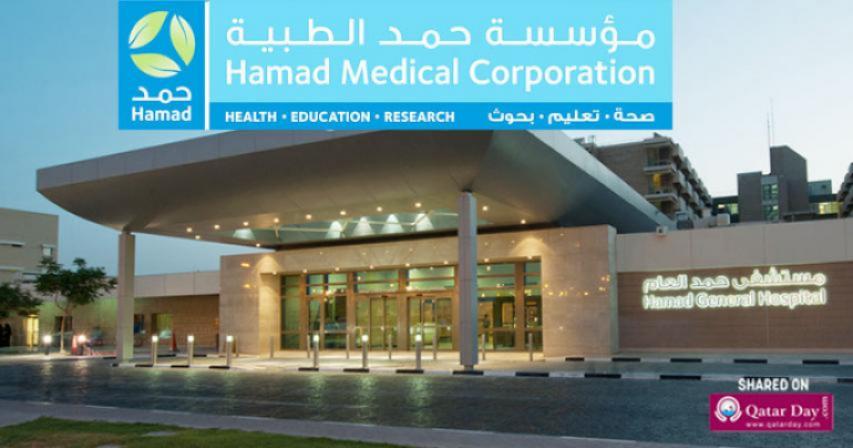As the sacred month of Ramadan is soon-approaching, Hamad Medical Corporation (HMC) is calling out to all patients with chronic medical illness, like diabetes, kidney failure, and heart disease to speak with their doctor before they begin their fast.
Specialists from all the healthcare provider’s network of hospitals states it is mandatory that patients with chronic conditions, especially those who require daily medication to treat their illness, seek medical advice before making any changes to their diet and medication regimes.
Professor Abdul Badi Abou Samra, Chairman of Internal Medicine at HMC, stated that diabetics who opt to fast during Ramadan, must be aware of the potential health risks that may be caused during their fasting period. He also called out to all patients who plan to fast to consult with their doctors as early as possible ahead of Ramdan, saying that while many diabetics can safely fast, modifications to diet, exercise, and medication routines are often required.
Professor Abou Samra said that, “Type 2 diabetics with controlled blood glucose levels who don’t suffer from renal or cardiac complications can generally fast safely, provided they consult their doctors ahead of Ramadan. Patients with type 1 diabetes who take insulin, pregnant women who have diabetes are generally advised not to fast. Your doctor can help determine if it is possible for you to safely fast.”
He also stressed that for individuals suffering from chronic illness such as diabetics and plans to fast, must be ensure to monitor their blood glucose levels at regular basis and drink adequate fluids during non-fasting hours as it is a vitality during the fasting hours. He also suggested that drinking water is more essential rather drinking any juice and sugary beverages or options that include stimulants, such as coffee and caffeinated soft drinks.
Professor Abou Samra also advises patients with diabetes to eat the Suhoor meal and he recommends taking a rest before Iftar, but mentions that sleeping during this period must be avoided at all cause as some patients may be at risk for hypoglycaemia.
“Patients with diabetes should speak with their doctor or health educator about when and how often they should check their blood glucose levels. As a general rule, a reading of 80-180 mg/dl post meal is considered safe and it is advisable to eat the Suhoor meal as late as possible. We also advise patients to refrain from strenuous workouts during Ramadan, particularly during the few hours before the sunset meal as this is when they are at risk for low blood sugar. Low-intensity activity is encouraged and performing prayers should be considered as part of the daily exercise programme”, he added.
Dr Hassan Al-Malki, Senior Consultant and Head of HMC’s Nephrology Department, says that all patients suffering from illness related to kidney, must be monitored as well as the severity of their condition will determine if they are able to safely fast. He adds that while patients with acute kidney failure and those who have been diagnosed with stage three chronic kidney disease or higher should not fast, it may be possible for some patients with kidney disease to safely fast. According to Dr Al-Malki, each patient’s suitability for fasting should be evaluated by their physician.
Dr Al-Malki also highlighted that abstaining from food and water can lead to dehydration, which can cause serious health complications for those with chronic kidney disease. He also emphasised that kidney transplant patients should refrain from fasting due to their medication regime, which is essential to keep the new organ working properly and the patient in good health.
Dr Al-Malki said all patients who are undergoing hemodialysis to treat kidney failure will typically receive the treatment three times a week and cannot fast due to IV fluid intake during the procedure; however, he said these patients can normally fast during days they are not receiving hemodialysis.
According to Dr Amar Salam, Senior Consultant Cardiologist and Head of the Cardiology Department at Al Khor Hospital and Associate Professor at Qatar University College of Medicine, while it is an important requirement for heart patients to speak with their doctor before undertaking a fast, in particular to the patients who require daily medication, most cardiac patients are able to safely fast.
“While fasting is not recommended for some heart patients, including those who have recently had a heart attack or heart surgery, and patients who have narrowing or inflammation of the aortic valve, research indicates that fasting is good for the heart. Fasting not only lowers one’s risk for coronary artery disease and diabetes, but it can also cause significant changes in a person’s blood cholesterol levels, increasing HDL-C, the ‘good’ cholesterol by 30 to 40%. However, it is important for patients to consult with their doctor, especially patients who take medication and will require timing and dosage modifications, and potentially an alternative medication,” he added.
Dr Salam concludes by saying that it is advisable for all the heart patients to eat little portions during their meals and must avoid fatty, salty, and sugary food consumptions and large quantities of beverages. He also recommended that patients can drink caffeinated beverages ease into Ramadan by reducing their consumption of tea, coffee, and other caffeinated beverages prior to Ramadan. He also pointed out that going without caffeine for long periods of hours during Ramadan can cause withdrawal symptoms such as migraines and can be a shock to the system in general.

Comments